All Stories
-
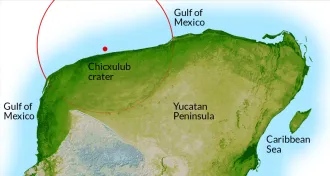 Paleontology
PaleontologyAsteroid strike spurred quick chill that led to dinosaurs’ demise
After an asteroid struck Earth 66 million years ago, ocean temperatures fell 2 degrees Celsius, leading to mass extinction of dinosaurs and other life.
-
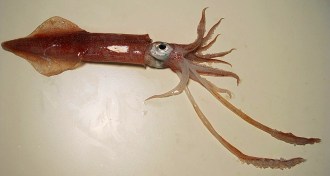 Life
LifePain may keep predators away, in squid anyway
Compared to healthy squid, injured ones start their defensive behaviors, including inking, when sea bass are farther away.
-
 Science & Society
Science & SocietyTop 10 things everybody should know about science
Much of scientific knowledge can be condensed into a few basic principles that every educated person should know.
-
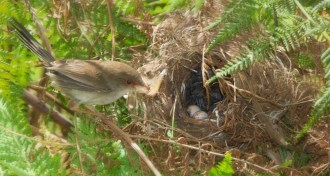 Animals
AnimalsBirds have clever solution for a cuckoo conundrum
Superb fairy wrens teach their incubating babies a password, and they become better teachers when they hear cuckoos are around.
-
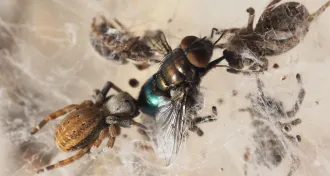 Genetics
GeneticsSpider genomes give hints about venom, silk production
The genetic codes identify new proteins that may be involved in making and turning on toxins in venom and also those used to make spider silk.
-
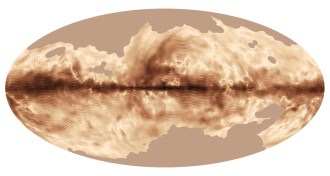 Astronomy
AstronomyMilky Way’s magnetic field mapped
The Planck telescope sees the galaxy’s magnetic field in polarized light bouncing off interstellar dust grains.
-
 Climate
ClimateTropics leave trace in Arctic warming
Cooling temperatures in the Pacific may be responsible for the recent rapid warming of northeastern Canada and Greenland.
-
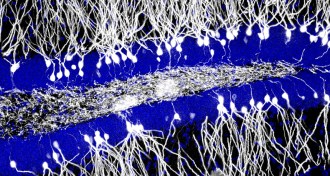 Neuroscience
NeuroscienceBirth of new brain cells might erase babies’ memories
The growth of new neurons in early childhood may explain why adults can’t remember being infants.
By Meghan Rosen -
 Psychology
PsychologyFarming practices have shaped thinking styles
The different levels of cooperation required to grow rice and wheat have sown psychological differences within China and possibly between East Asia and the West.
By Bruce Bower -
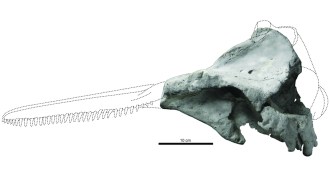 Paleontology
PaleontologyOldest true dolphin species gets a new name
A dolphin species first described in the 1970s has gotten a new name but still retains the title of oldest true dolphin species identified to date.
-
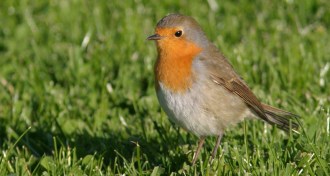 Animals
AnimalsEveryday electronics may upset birds’ compass
Weak electromagnetic waves, coming from normal university activities, interfere with European robins’ migratory orientation.
By Susan Milius -
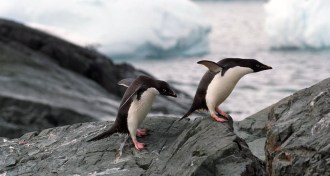 Life
LifeNew bird flu found in Antarctic penguins
Designated H11N2, the virus was found in less than 3 percent of the 301 Adélie penguins tested and the infection is asymptomatic.